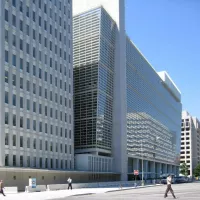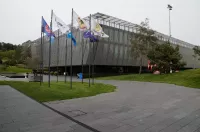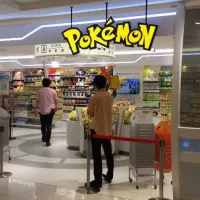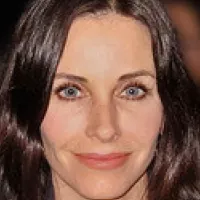Kosovo is a landlocked country in Southeast Europe, bordering Albania, Montenegro, Serbia, and North Macedonia. With an area of 10,887 km2, it is home to nearly 1.6 million people, predominantly ethnic Albanians. Its capital and largest city is Pristina, and other major cities include Prizren, Ferizaj, Gjilan, and Peja. The terrain is varied, featuring plains, hills, and mountains reaching over 2,500 m. The climate is mainly continental with Mediterranean and Alpine influences.
May 1901: Albanian Pillaging
In May 1901, Albanians pillaged and partially burned the cities of Novi Pazar, Sjenica and Pristina, and killed many Serbs near Pristina and in Kolašin (now North Kosovo).
1910: Albanian Revolts
In 1910, Kosovo experienced one of the Albanian revolts as part of the Albanian Renaissance.
1912: Albanian Revolts and Ottoman Empire conquest
In 1912, Kosovo experienced one of the Albanian revolts as part of the Albanian Renaissance and the Ottoman Empire fully conquered Kosovo after the Second Battle of Kosovo, ruling for nearly five centuries until 1912.
1912: Serbian Assimilation Attempts and Albanian Expulsions
In 1912, Serbian authorities promoted the assimilation of Albanians into Serbian society and expelled Albanians from Kosovo.
1912: Albanian revolt against the Ottoman Empire
In the spring of 1912, Albanians under the lead of Hasan Prishtina revolted against the Ottoman Empire, resulting in the Ottomans accepting the rebels' demands, though this autonomy never materialized.
1913: Treaty of London and Albanian Displacement
In 1913, after the Ottomans' defeat in the First Balkan War, the Treaty of London was signed with Metohija ceded to the Kingdom of Montenegro and eastern Kosovo ceded to the Kingdom of Serbia, leading to over 100,000 Albanians leaving Kosovo and about 50,000 being killed in the massacres that accompanied the war.
1913: Cession to the Kingdom of Serbia
In 1913, following the Balkan Wars (1912–1913), Kosovo was ceded to the Kingdom of Serbia.
1918: Allied Powers push out Central Powers
In 1918, the Allied Powers pushed the Central Powers out of Kosovo.
1919: Land reform affecting Albanian landowners
In 1919, Albanians and other Muslims were forced to emigrate, mainly with the land reform which struck Albanian landowners.
April 1922: New administration system
On 26 April 1922 a new administration system split Kosovo among three districts (oblast) of the Kingdom: Kosovo, Raška and Zeta.
1929: Transformation into the Kingdom of Yugoslavia
In 1929, the country was transformed into the Kingdom of Yugoslavia and the territories of Kosovo were reorganised among the Banate of Zeta, the Banate of Morava and the Banate of Vardar.
1941: Education denial
Between 1912 and 1941 Kosovar Albanians' right to receive education in their own language was denied alongside other non-Slavic or unrecognised Slavic nations of Yugoslavia.
August 1945: Law disallowing return of colonists
In August 1945, a new law disallowed the return of colonists who had taken land from Albanian peasants.
1945: Autonomous Region of Kosovo and Metohija
In 1945, the existing province took shape as the Autonomous Region of Kosovo and Metohija.
1956: Show Trial in Pristina
In 1956, a show trial in Pristina was held in which multiple Albanian Communists of Kosovo were convicted of being infiltrators from Albania and given long prison sentences.
1959: Final demarcation of province
In 1959, the Autonomous Region of Kosovo and Metohija had its final demarcation.
1964: Yugoslav government investigation
In 1964, an official investigation conducted by the Yugoslav government recorded nearly 8,000 war-related fatalities in Kosovo between 1941 and 1945, 5,489 of them Serb or Montenegrin and 2,177 Albanian.
1966: Ouster of Ranković
After the ouster of Ranković in 1966, the agenda of pro-decentralisation reformers in Yugoslavia succeeded in the late 1960s in attaining substantial decentralisation of powers, creating substantial autonomy in Kosovo and Vojvodina, and recognising a Muslim Yugoslav nationality.
1969: Establishment of Kosovafilm
In 1969, the parliament of Kosovo established Kosovafilm, a state institution for the production, distribution, and showing of films.
1974: Major autonomy granted to Kosovo
By the 1974 Yugoslav Constitution, Kosovo was granted major autonomy, allowing it to have its own administration, assembly, and judiciary; as well as having a membership in the collective presidency and the Yugoslav parliament, in which it held veto power.
1974: Concerns over Albanian nationalism
In the aftermath of the 1974 constitution, concerns over the rise of Albanian nationalism in Kosovo rose.
1978: Celebration of the League of Prizren Anniversary
In 1978, widespread celebrations occurred for the 100th anniversary of the founding of the League of Prizren, raising concerns over Albanian nationalism in Kosovo.
February 1979: Kosova National Art Gallery Founded
In February 1979, the Kosova National Art Gallery, now known as the National Gallery of Kosovo, was founded as the highest institution of visual arts in Kosovo and was named after Muslim Mulliqi.
March 1981: Kosovar Albanian student protests
In March 1981, Kosovar Albanian students at the University of Pristina organized protests seeking republic status within Yugoslavia and demanding human rights. These protests were suppressed by the police and army, leading to many arrests.
1981: Protests and State of Emergency
In 1981, protests by Albanians over the status of Kosovo resulted in Yugoslav territorial defence units being brought into Kosovo and a state of emergency being declared resulting in violence and the protests being crushed.
1982: Viktorija represents Yugoslavia in Eurovision
In 1982, Viktorija became the only artist from Kosovo to represent Yugoslavia in the Eurovision Song Contest as part of the band Aska.
1985: Beginning of Albanian conversions to Protestantism
Since 1985, Kosovar Albanians had begun converting to Protestantism, with as many as 15,000 converts by 2008.
1986: Serbian Orthodox Church Claim
In 1986 the Serbian Orthodox Church published an official claim that Kosovo Serbs were being subjected to an Albanian program of 'genocide'.
1989: Reduction of Kosovo's autonomous status
In 1989, Serbian President Slobodan Milošević reduced Kosovo's special autonomous status within Serbia and started cultural oppression of the ethnic Albanian population.
1989: Peak Exports from Rahovec Facility
In 1989, the Rahovec wine production facility in Kosovo reached its peak, exporting 40 million litres of wine, mainly to the German market.
July 1990: Proclamation of the Republic of Kosova
In July 1990, Kosovo Albanians proclaimed the existence of the Republic of Kosova.
1990: Dissolution of Kosovafilm by Serbian authorities
In 1990, Kosovafilm was taken over by the Serbian authorities and dissolved.
1990: Low GDP limits health care development
Low GDP during 1990 worsened Kosovo's capabilities to develop a modern health care system.
May 1992: Election of Ibrahim Rugova as President
In May 1992, Ibrahim Rugova was elected as the president of the self-declared Republic of Kosova.
September 1992: Declaration of sovereignty and independence
In September 1992, Kosovo Albanians declared the Republic of Kosova a sovereign and independent state.
1992: Albania's Parliament recognizes the Republic of Kosova
In 1992, Albania was the only country whose parliament voted to recognise the Republic of Kosova.
November 1995: Status of Kosovo unresolved in Dayton Agreement
In November 1995, the status of Kosovo was not resolved as part of the Dayton Agreement, which ended the Bosnian War.
1996: KLA attacks against Yugoslav Army and Serbian police
By 1996, the Kosovo Liberation Army (KLA) launched attacks against the Yugoslav Army and Serbian police in Kosovo, which resulted in the Kosovo War.
September 1998: Lake Radonjić massacre
In September 1998, Serbian police collected 34 bodies of people believed to have been seized and murdered by the KLA, at Lake Radonjić near Glođane.
December 1998: Resumption of Fighting and Račak Massacre
In December 1998, fighting resumed in Kosovo after a ceasefire failed, culminating in the Račak massacre, which attracted international attention to the conflict.
1998: Kosovo War
In 1998, the tensions between Kosovo's Albanian and Serb communities culminated in the Kosovo War.
1998: Peak Population of Kosovo
The country's population rose steadily over the 20th century and peaked at an estimated 2.2 million in 1998.
June 1999: NATO Intervention
Between March 24th and June 10th of 1999, NATO intervened by bombing Yugoslavia, aiming to force Milošević to withdraw his forces from Kosovo.
June 1999: Reestablishment of Kosovafilm
In June 1999, after Yugoslav withdrawal from the region, Kosovafilm was reestablished to revive the film industry in Kosovo.
June 1999: UN Security Council Resolution 1244
On 10 June 1999, the UN Security Council passed UN Security Council Resolution 1244, which placed Kosovo under transitional UN administration and authorized Kosovo Force, a NATO-led peacekeeping force.
June 1999: Indictment of Yugoslav officials by ICTY
The International Criminal Tribunal for the former Yugoslavia (ICTY) indicted nine senior Yugoslav officials, including Milošević, for crimes against humanity and war crimes committed between January and June 1999.
1999: Destruction of Heritage Buildings during Conflict
During the 1999 conflict in Kosovo, many buildings representing the region's heritage were destroyed or damaged, including at least 500 kullas in the Dukagjini region.
1999: Withdrawal of Yugoslav Army and Establishment of UN Mission
In 1999, the Kosovo War resulted in the Yugoslav Army's withdrawal and the establishment of the United Nations Interim Administration Mission in Kosovo.
1999: The War in Kosovo causes economic stagnation
The War in Kosovo in 1999 is one of the reasons for Kosovo's economic stagnation.
2000: Increase in archaeological expeditions
Since 2000, the increase in archaeological expeditions has revealed many previously unknown sites.
November 2001: First Elections for the Assembly of Kosovo
In November 2001, the Organization for Security and Co-operation in Europe supervised the first elections for the Assembly of Kosovo.
October 2004: Kosovo-wide elections
After Kosovo-wide elections in October 2004, the LDK and AAK formed a new governing coalition that did not include PDK and Ora.
2004: Visoki Dečani monastery recognised by UNESCO
In 2004, UNESCO recognised the Visoki Dečani monastery as a World Heritage Site for its outstanding universal value.
2004: Kosovo Unrest
In 2004, prolonged negotiations over Kosovo's future status, sociopolitical problems and nationalist sentiments resulted in the Kosovo unrest. 11 Albanians and 16 Serbs were killed.
2005: Estimated value of Kosovo's minerals
In 2005, the Directorate for Mines and Minerals and the World Bank estimated that Kosovo had €13.5 billion worth of minerals.
February 2006: Start of International Negotiations
In February 2006, international negotiations began to determine the final status of Kosovo, led by UN Special Envoy Martti Ahtisaari.
2006: UNESCO extended the site of patrimony
In 2006, UNESCO extended the site of patrimony to include the Patriarchate of Peja, Our Lady of Ljeviš, and Gračanica monastery, naming it Medieval Monuments in Kosovo, and inscribed the property on the List of World Heritage in Danger.
February 2007: Ahtisaari delivers draft status settlement proposal
In February 2007, Martti Ahtisaari delivered a draft status settlement proposal to leaders in Belgrade and Pristina, proposing 'supervised independence' for Kosovo.
July 2007: Draft resolution backing Ahtisaari's proposal discarded
On 20 July 2007, the United States, United Kingdom and other European members of the Security Council formally 'discarded' a draft resolution backing Ahtisaari's proposal, having failed to secure Russian backing.
November 2007: Parliamentary elections
Parliamentary elections were held on 17 November 2007. Hashim Thaçi claimed victory for PDK and stated his intention to declare independence.
February 2008: Postponement of declaration of independence
A declaration of independence by Kosovar Albanian leaders was postponed until the end of the Serbian presidential elections on 4 February 2008.
February 2008: Albania recognizes the Republic of Kosovo
In February 2008, Albania was one of the first countries to officially announce its recognition of the Republic of Kosovo.
February 2008: Declaration of Independence
On 17 February 2008, Kosovo declared independence from Serbia.
2008: The Financial Crisis impacts Kosovo
Despite the 2008 financial crisis and the subsequent European debt crisis, Kosovo's GDP has mostly grown since its declaration of independence.
2008: Kosovo Police assumes law enforcement responsibilities
Following the independence of Kosovo in 2008, the Kosovo Police assumed the primary law enforcement responsibilities within the country.
2008: EULEX gains acceptance
In 2008, EULEX gained acceptance from Serbia and the UN Security Council. It operated under the UNMIK mandate with operational independence.
2008: Protestant Albanian conversions
In 2008, Protestant pastor Artur Krasniqi claimed that "as many as 15,000" Kosovar Albanians had converted to Protestantism since 1985.
2008: Preparations for the formation of the Kosovo Security Force
In 2008, under the leadership of NATO, the Kosovo Force (KFOR) and the Kosovo Protection Corps (KPC) undertook preparations for the formation of the Kosovo Security Force.
2008: Kosovo declares independence
Since Kosovo's declaration of independence in 2008, it has made advancements in international sports.
2008: Financial crisis onset
Since the onset of the 2008 financial crisis, Kosovo has experienced solid economic growth.
2009: Establishment of Kosovo's Security Force
In 2009, Kosovo's Security Force was established with the aim of becoming self-sufficient, leading to a gradual reduction in the operations of KFOR.
July 2010: ICJ advisory opinion on Kosovo's declaration of independence
On 22 July 2010, the International Court of Justice rendered an advisory opinion holding that Kosovo's declaration of independence was not in violation of international law or UNSCR 1244.
2010: Recorded vascular plant species in Kosovo
As of 2010, there were 1,800 recorded vascular plant species in Kosovo, with an expected actual number of 2,500 species. This diversity results from the interaction of geology and hydrology, creating varied habitat conditions. Kosovo represents 2.3% of the Balkans' surface area but contains 25% of the Balkan flora and about 18% of the European flora.
2010: Dokufest Voted as One of the Best International Documentary Festivals
In 2010, Dokufest was voted as one of the 25 best international documentary festivals.
2011: New York Times includes Kosovo on places to visit list
In 2011, The New York Times included Kosovo on its list of 41 places to visit.
February 2012: Asterisk Agreement
On 24 February 2012, the "asterisk agreement" was agreed in an 11-point arrangement.
2012: Rona Nishliu in Eurovision Song Contest
In 2012, singer Rona Nishliu finished 5th in the Eurovision Song Contest.
2012: ICO concludes operations
In 2012, the International Civilian Office (ICO) concluded operations after fulfilling obligations.
April 2013: Brussels Agreement
On 19 April 2013, Serbia and Kosovo reached the Brussels Agreement, brokered by the EU, allowing the Serb minority in Kosovo to have its own police force and court of appeals.
2013: Nevena Božović in Eurovision Song Contest
In 2013, Nevena Božović represented Serbia in the Eurovision Song Contest as a member of Moje 3.
2013: Brussels Agreement
In 2013, Serbia accepted the governing authority of the Kosovo institutions as part of the Brussels Agreement.
2014: Kosovo submits first film for Academy Award
In 2014, Kosovo submitted 'Three Windows and a Hanging' directed by Isa Qosja, as their first film for the Academy Award for Best Foreign Language Film.
2014: Construction of R6 Motorway began
In 2014, construction of the R6 Motorway in Kosovo began, linking Pristina with the border of North Macedonia.
2014: Government announces plan to establish Ministry of Defence
In 2014, the government officially announced its decision to establish a Ministry of Defence by 2019, with the aim of transforming the existing Kosovo Security Force into the Kosovo Armed Forces.
2015: Kosovo's first participation in the European Games
In 2015, Kosovo first participated in the European Games, winning four medals.
2015: Kosovo's UNESCO membership bid fails
In 2015, Kosovo's bid to become a member of UNESCO fell three votes short of the two-thirds majority required to join.
2016: Kosovo's inaugural participation in the Olympic Games
In 2016, Kosovo participated in the Olympic Games for the first time, securing its first medals.
2016: Shok Nominated for Academy Award
In 2016, the movie Shok was nominated for the Academy Award for Best Live Action Short Film at the 88th Academy Awards.
2017: Lindita represents Albania in Eurovision
In 2017, Lindita represented Albania in the Eurovision Song Contest.
2017: Construction of R7.1 Motorway began
In 2017, construction began on the R7.1 Motorway in Kosovo.
December 2018: Legislation enacted to transform Kosovo Security Force into an army
In December 2018, the government enacted legislation to redefine the mandate of the Kosovo Security Force, effecting its transformation into an army.
2018: Kosovo in the UEFA Nations League
During the 2018 edition of the UEFA Nations League, Kosovo finished atop their League D group.
2018: Kosovo's first participation in the Mediterranean Games
In 2018, Kosovo began participating in the Mediterranean Games, obtaining ten medals.
2018: Poverty and unemployment in Kosovo
In 2018, the International Monetary Fund reported that approximately one-sixth of the population lived below the poverty line and one-third of the working age population was unemployed, the highest rate in Europe.
December 2019: Kosovo and Albania sign energy agreement
In December 2019, Kosovo and Albania's energy transmission operators signed an agreement to establish a joint energy bloc between the two countries, allowing them to exchange energy reserves and expected to save Kosovo €4 million per year.
2019: Planned Establishment of Ministry of Defence
By 2019, the government planned to establish a Ministry of Defence, with the aim of transforming the existing Kosovo Security Force into the Kosovo Armed Forces.
2019: Nevena Božović represents Serbia as a solo act in Eurovision
In 2019, Nevena Božović represented Serbia as a solo act in the Eurovision Song Contest.
2019: Agriculture's contribution to GDP increases slightly
In 2019, agriculture accounts for 6.6% of GDP, an increase of 0.5 percentage points from previous years.
2019: Completion of R6 Motorway
In 2019, the R6 Motorway, linking Pristina with the border of North Macedonia, was completed.
2019: Forest Landscape Integrity Index
Kosovo had a 2019 Forest Landscape Integrity Index mean score of 5.19/10, ranking it 107th globally out of 172 countries.
2020: Limited trust between ethnic groups in Kosovo
A 2020 research report funded by the EU shows that there is a limited scale of trust and overall contact between the major ethnic groups in Kosovo.
2021: Protests and demonstrations in Kosovo
A number of protests and demonstrations took place in Kosovo between 2021 and 2023.
2021: Kosovo engages in formulating a voluntary NDC
In 2021, Kosovo actively engaged in the process of formulating a voluntary Nationally Determined Contribution (NDC) with assistance from Japan. This outlines the country's actions and strategies for mitigating climate change and adapting to its impacts.
December 2022: Application to the European Union
In December 2022, Kosovo filed a formal application to become a member of the European Union.
December 2022: Kosovo files application to become a member of the European Union
On 15 December 2022, Kosovo filed a formal application to become a member of the European Union.
2022: Protests and demonstrations in Kosovo
A number of protests and demonstrations took place in Kosovo between 2021 and 2023.
February 2023: Meeting in Brussels
On 27 February 2023, presidents of Serbia and Kosovo organised a meeting in Brussels to create and agree upon an 11-point agreement on implementing a European Union-backed deal to normalise ties between the two countries.
March 2023: Meeting in Ohrid
On 18 March 2023, presidents of Serbia and Kosovo organised a meeting in Ohrid to create and agree upon an 11-point agreement on implementing a European Union-backed deal to normalise ties between the two countries.
2023: Protests and demonstrations in Kosovo
A number of protests and demonstrations took place in Kosovo between 2021 and 2023.
2023: Kosovo ranked among top ten safest countries globally
According to the Global Safety Report by Gallup for 2023, Kosovo is among the top ten countries globally in terms of perceived safety and law enforcement effectiveness.
2023: Kosovo sets goal for reducing greenhouse gas emissions
In 2023, Kosovo established a goal of reducing greenhouse gas emissions by approximately 16.3% as part of its broader objective to achieve carbon neutrality by the year 2050.
2023: Kosovo Security Force Active Members
In 2023, the Kosovo Security Force had over 5,000 active members, using vehicles and weapons acquired from a number of NATO countries.
2023: Life Expectancy in Kosovo
In 2023, the overall life expectancy at birth in Kosovo is 79.68 years; 77.38 years for males and 81.87 years for females. The estimated total fertility rate in 2023 is 1.88 children born per woman.
January 2024: Kosovo nationals exempt from visa requirements
As of 1 January 2024, Kosovo nationals are exempt from visa requirements for stays of up to 90 days within any 180-day period in the Schengen Area.
January 2024: End of vehicle registration plate demonstrations
The 2022–23 demonstrations ended on 1 January 2024 when each country recognized each other's vehicle registration plates.
2024: Kosovo's ranking in the World Happiness Report
According to the World Happiness Report 2024, Kosovo is currently ranked 29th among a total of 143 nations assessed.
2024: Kosovo Population Census
According to the most recent census in 2024 by the Kosovo Agency of Statistics, Kosovo's population is 1,585,566.
2024: Ethnic composition of Kosovo in 2024
In 2024, Albanians constituted around 92% of the population of Kosovo, followed by ethnic Serbs (2.3%), Bosniaks (1.7%), Ashkali and Balkan Egyptians (1.7%), Turks (1.2%), Romani (<1%), and the Gorani (<1%).
2024: Pristina International Airport Passenger Traffic
In 2024, the Pristina International Airport handled a total of 4,082,481 passengers.
2024: Religious affiliation in Kosovo in 2024
In the 2024 census, 93.5% of the population of Kosovo were Sunni Muslims, 2.3% were Eastern Orthodox and 1.8% Roman Catholics.
December 2025: Recognition of Independence
As of 19 December 2025, 118 UN states recognised Kosovo's independence.
2025: Status of Kosovo's recognition as of 2025
As of 2025, 110 out of 193 United Nations member states recognise the Republic of Kosovo. Within the European Union, it is recognised by 22 of 27 members and is a potential candidate for the future enlargement of the European Union.
2025: Kosovo's ranking in the World Press Freedom Index
In 2025, Kosovo ranked 99th out of 180 countries in the World Press Freedom Index report, compiled by Reporters Without Borders, with a score of 52.73, indicating difficult conditions.
2030: Kosovo scheduled to host the games
Kosovo is scheduled to host the games in 2030.
2050: Kosovo aims for carbon neutrality
By the year 2050, Kosovo aims to achieve carbon neutrality as part of its climate change mitigation strategy.
Mentioned in this timeline
Germany officially the Federal Republic of Germany is a nation...
Albania officially the Republic of Albania is a country in...
Japan is an East Asian island country located in the...

The World Bank is an international financial institution offering loans...

Football is a family of team sports primarily involving kicking...

FIFA the F d ration Internationale de Football Association is...
Trending

4 minutes ago Official Pokémon LEGO Sets Launch Worldwide on Pokémon Day 2026!

5 minutes ago Scream 7 Premiere Sees Protests After Melissa Barrera's Firing; Cast Reunites.

5 minutes ago Stock market plunges after PPI inflation data; Dow, S&P 500, Nasdaq decline.
5 minutes ago US advises embassy staff to leave Israel amid Iran strike threats, urging speed.

5 minutes ago IndyCar Season Opens in St. Petersburg: O'Ward and Palou in Focus.

6 minutes ago Norah O'Donnell Back on CBS Mornings, Highlights Women in 'We the Women'
Popular

Jesse Jackson is an American civil rights activist politician and...

Barack Obama the th U S President - was the...

Susan Rice is an American diplomat and public official prominent...

XXXTentacion born Jahseh Dwayne Ricardo Onfroy was a controversial yet...

Michael Joseph Jackson the King of Pop was a highly...

Kashyap Pramod Patel is an American lawyer who became the...